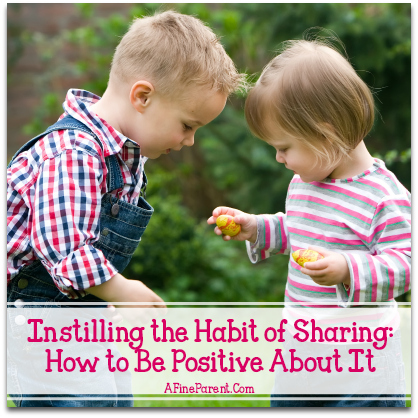 “Mommy, is she going to be better at everything than me?”
“Mommy, is she going to be better at everything than me?”
I hugged my dripping wet, tiny seven-year-old. At the end of our girls’ first swimming lessons, what I had dreaded the whole six-week session happened.
The younger got promoted to the next level, and her big sister didn’t.
Bigger and more athletic than her older sister, she simply had better motor skills, a higher attention span, and more courage at that young age. Big Sister struggled with a mix of hurt and jealousy.
“Am I always going to be not as good?”
I struggled, too.
I mean, given their genetics, none of our children were ever going to be athletically coordinated, let alone gifted. As the larger and stronger child, though, her little sister did have an edge. What to say to this little, wet waif, certain that she would always be at the end of every performance test?
I wish I had known the question she was really asking: “Do I have value no matter how well I can swim? Am I still precious to you when I fail? Will you love me the same even if I’m always ‘not as good’ as someone else?”
Jealousy and insecurity are as old as Cain and Abel, whether it be between siblings, friends, or total strangers whom kids hear their parents praising. It seems a logical leap for a child to think, “Mom likes her better than me,” when she hears her parent talking about the good points of another child.
Most of us have lived with the fear that we won’t be liked, or liked as well, if we don’t perform to a certain level. Healthy adults learn to separate their identity from other people’s judgments. Children, though, are still forming their identity, and feelings of jealousy and insecurity are normal as they struggle to figure out their place.
So should I lie about my younger child’s prowess to appease the older? Do we never praise another child?
I doubt that’s the best approach, though. Encouragement is in short enough supply for most of us, so I’d vouch for forging full speed ahead on encouraging any child who needs or deserves it. Our children need a healthy balance of security and humility so that they know they are well loved but that they are not the only praiseworthy kid on the block.
How then do we foster security but not allow jealousy to take root?
 According to the experts, it all revolves around how we praise and what we value. Certain kinds of praise actually invite jealousy and comparison. Others teach our children that we can all have our share of the praise pie because there’s enough to go around. Here are some dos and don’ts to pay attention to for alleviating jealousy and sibling rivalry as we raise confident, emotionally secure kids.
According to the experts, it all revolves around how we praise and what we value. Certain kinds of praise actually invite jealousy and comparison. Others teach our children that we can all have our share of the praise pie because there’s enough to go around. Here are some dos and don’ts to pay attention to for alleviating jealousy and sibling rivalry as we raise confident, emotionally secure kids.
Don’t—Overpraise
I thrived on praise as a kid, so when my junior high band director showed he believed in me, I practiced my way into first-chair clarinet. There was nothing wrong with that—hard work and encouragement paid off.
However, with all the praise I got for being “the best,” no one prepared me for the day when the competition would be fiercer, and inevitably, I would lose that coveted spot to high schoolers older and more experienced than I was. I didn’t have the tools to accept my ability alongside theirs and work together rather than in competition. I only knew how to be the best or be jealous.
When a child feels jealous of our attention to another child, the automatic tendency is to reassure her with all the superlatives: You’re the best, smartest, prettiest, most talented. That strategy is precisely what our children don’t need, however.
For one thing, he knows he isn’t the best. He’s seen Austin pitch or heard Lily sing. He knows other kids score higher on tests. When parents tell kids things they know aren’t true, that creates more insecurity, not less. They don’t know if we’re untrustworthy or just kind of clueless.
Besides, throughout life, there will always be someone better at something. If he believes he has to keep competing in a losing effort to be superlative all the time, jealousy of those at the top will be a close companion.
Do—Be Honest
 Hearing another child or a sibling praised doesn’t have to devastate a child if she knows her parents are pleased and proud of her real accomplishments and abilities. As Dr. Lisa Firestone says in this article, “What parents need to do is simple: take notice of something your kids like to do and offer support and encouragement that is realistic and appropriate.”
Hearing another child or a sibling praised doesn’t have to devastate a child if she knows her parents are pleased and proud of her real accomplishments and abilities. As Dr. Lisa Firestone says in this article, “What parents need to do is simple: take notice of something your kids like to do and offer support and encouragement that is realistic and appropriate.”
“You’re going to be the next LeBron James!” isn’t terribly helpful, because children are smart enough to know the odds are not in their favor. They’ll start to doubt all their parents’ assessments. This only leads to undermining the value of what their parents have to say and creates a blind race to collect the most superlatives possible.
“You’ve gained a lot of confidence in your free throwing,” however, tells a child that his parent is paying attention. So he’s more likely to feel supported and encouraged and less likely to feel jealous if that parent sees another kid’s value to the team as well.
Don’t—Compare
I was the youngest of seven children in a blended family. I was also The Pleaser, so I got in zero trouble and scored straight A’s through school. The downside of this was that my nearest sibling was constantly told, in various ways, how deficient she was compared to me. It didn’t do much for sibling relationships.
There’s such a temptation, when we want to encourage our kids to do better—or, let’s face it, to control them better—to subtly compare. “See how well Elise handles her temper? Can’t you do that?” “Evelyn isn’t so shy. I bet you could be like her if you tried.”
But the message our child hears is: “I like that child better than you.”
In studies that contrasted social-comparison praise (“You solved this puzzle faster than anyone else!”) with mastery-based praise (“I love the way you got my interest in that story.”), researchers found that children who are praised for being better at something than someone else only continue their motivation so long as the winning—and the praise—keep coming. They also quickly learn to avoid risks that will make them lose. Competition and their standing among peers become their primary goal.
Such kids are more likely to feel insecure when you praise others, and jealousy follows them around closely.
On the other hand, mastery-based praise, which encourages the effort the child puts in and her individual achievements, helps build intrinsic motivation and a healthy sense of self-worth in kids, which are the perfect antidote for insecurity and jealousy.
Do—Be Generous
 “Yes, Beth does balance beam cartwheels very well. She works hard and rarely falls off. And you work hard at paying attention and following the coach’s directions—I noticed how much better your backflips are getting. Isn’t it great you can both do something you love?”
“Yes, Beth does balance beam cartwheels very well. She works hard and rarely falls off. And you work hard at paying attention and following the coach’s directions—I noticed how much better your backflips are getting. Isn’t it great you can both do something you love?”
We can make it clear to our kids that we don’t play the comparison game. Everyone can have praise, and everyone can feel treasured. Giving to one doesn’t lessen another. As Brené Brown, the author of the book Daring Greatly suggests, it’s our false narrative of scarcity that causes so many of us to compare and feel we come up short:
“Scarcity thrives in a culture where everyone is hyperaware of lack. Everything from safety and love to money and resources feels restricted or lacking. We spend inordinate amounts of time calculating how much we have, want, and don’t have, and how much everyone else has, needs, and wants.”
 Children are not invulnerable to scarcity thinking. They easily catch the cultural virus around them. Lynne Twist, in her book The Soul of Money, sums up what parents must combat: “This internal mindset of scarcity lives at the very heart of our jealousies.”
Children are not invulnerable to scarcity thinking. They easily catch the cultural virus around them. Lynne Twist, in her book The Soul of Money, sums up what parents must combat: “This internal mindset of scarcity lives at the very heart of our jealousies.”
In reality, love and praise don’t have to be in short supply. Our refusal to play comparison games, while being generous with our acknowledgment and appreciation of kids’ effort, lets our kids know that there is a bottomless well full of them. Any given to another child does not leave less for her. This not only serves to curb jealousy but will launch her into adulthood without the crippling sense of “never enough.”
Don’t—Focus on Performance
Children who are insecure in their parents’ love often believe that love to be based on performance. If I’m good enough, smart enough, cute enough, polite enough, […] then they will love me.
So if a child hears “Look at those grade—you’re so smart!” but later hears Mom mention another boy’s even better grades, he feels threatened. Mom loves me when I get a few A’s, so it follows that she loves Jack more, because she just said how great it is that he gets all A’s.
When my daughter struggled in her third year of high school gymnastics (I guess we did get some athletic ability), I realized how competitive her team had become rather than cooperative. In a crucial meet, she was simultaneously defending a title and facing a huge fear—a routine that had given her a debilitating concussion the year before. Her coaches focused on the title, and hence her performance—and ultimately lost her fidelity. I chose to congratulate her on conquering the fear. That was the last time she ever performed for the coaches. She’s gone on to face many, many fears.
In an early childhood study, researchers tracked whether parents gave more “person praise” (You did such a good job. You’re so smart!) or “process praise” (You worked hard on that!). They discovered that “The higher the percentage of process praise kids got during early childhood, the more likely kids were to endorse ‘can-do’ attitudes when they were in grade school.”
Do—Focus on Relationship
I used to put love notes in my kids’ lunchboxes. More accurately, I often put love eggs in. I’d draw a funny face or picture on a hard-boiled egg and write some silly encouragement. “You’re egg-ceptional!” “Have an egg-stra great day!” They were meant to say, “I love you just because.” In later years, they would write encouraging notes to one another and stick them on bedroom doors.
Parents can post a sticky on the mirror where kids get ready for school: I love you. I’m thinking about you today. I’m praying for you (if you are a person of faith). I believe in you. Focus on appreciation for her being her and for the relationship you share.
Children who know their parents love them simply because they are theirs—no matter what they do or how they perform—are secure when their parents praise other children. They know their worth isn’t dependent on whether they can outperform someone else.
And one last do . . .
Do—Create Downtime
 Spend time doing nothing with them. If all parent-child time is focused on things like homework, lessons, and practices, a child gets the idea that performance is the center of the relationship. Take time to go for a walk, play a game, make cookies, read a book, or plant a garden. (Do not criticize how the cookies are being made!) Set aside time to show your child that you value just being with him. Then, when he hears you mention how well Jordan is playing soccer defense, he has a safeguard from jealous feelings creeping in because you don’t only love being with him at soccer games—you love the whole package.
Spend time doing nothing with them. If all parent-child time is focused on things like homework, lessons, and practices, a child gets the idea that performance is the center of the relationship. Take time to go for a walk, play a game, make cookies, read a book, or plant a garden. (Do not criticize how the cookies are being made!) Set aside time to show your child that you value just being with him. Then, when he hears you mention how well Jordan is playing soccer defense, he has a safeguard from jealous feelings creeping in because you don’t only love being with him at soccer games—you love the whole package.
Neuroscientists say that snuggling up with a book might lower cortisol levels, reducing stress caused by things like getting a bad test score, not making the team, or other childhood “failures” that make them feel less valuable.
Children equate love with attention. If they are jealous of your time with other children, maybe it’s a clue to look at the time you spend with them and examine its quality. Focused attention says, “Your feelings and needs are important to me right now.” Get eye to eye. Put down phones, and turn off TVs. Listen carefully to the conversation. Nothing says, “You will always be my best beloved” like paying face-to-face attention.
The more capacity we have to encourage, praise, and love anyone, the more secure our children feel that we love them, too. I hope that if my kids see me as a person who is generous with love and honest praise, they will learn not to be stingy with it as well. And that I hope will help them embrace the abundance attitude and truly believe that I will always have enough (and more!) love for each of them, no matter who else I am praising at the moment.
 The 2-Minute Action Plan for Fine Parents
The 2-Minute Action Plan for Fine Parents
For our quick contemplation exercise today, answer the following questions:
- What was the last thing I praised my child for?
- Could I have phrased it better, Or did I get it exactly right?
- When was the last time I praised another child within my child’s hearing?
- What was my child’s reaction /response to it?
- Did we talk about it later?
Long-Term Action Plan for Fine Parents
Set aside downtime to spend with each child. Think of something he or she would love to do without screens, competition, or evaluation. Think about ways you can make him or her feel good during that time just for being yours and being her/himself.
 “Fold the socks!”
“Fold the socks!”
 When was the last time you felt guilty and inadequate as a parent?
When was the last time you felt guilty and inadequate as a parent? Gathered around a fire, a mother and child talk in quiet voices.
Gathered around a fire, a mother and child talk in quiet voices. We all know the expression, “Sharing is caring.”
We all know the expression, “Sharing is caring.”